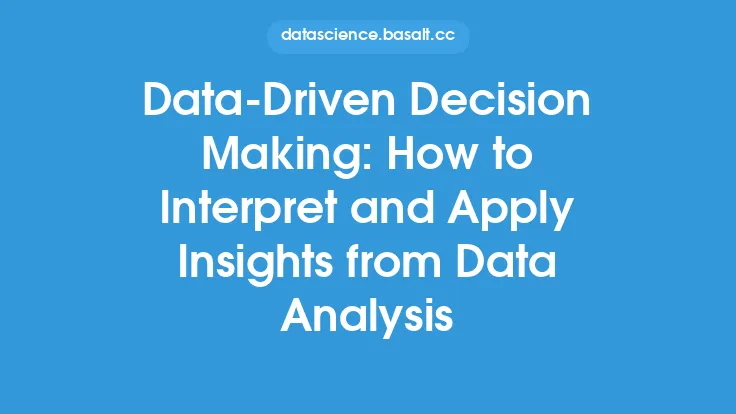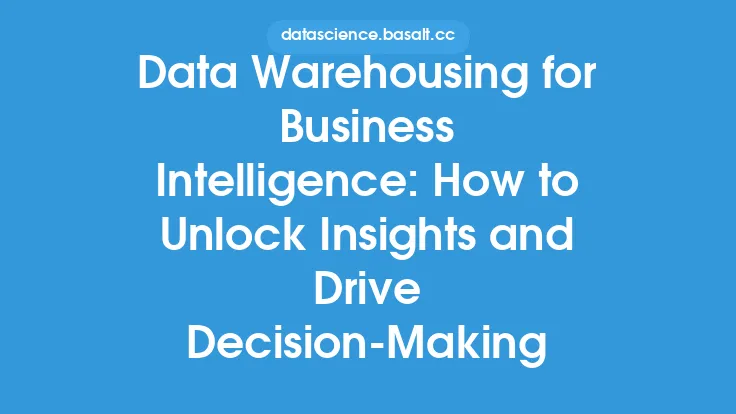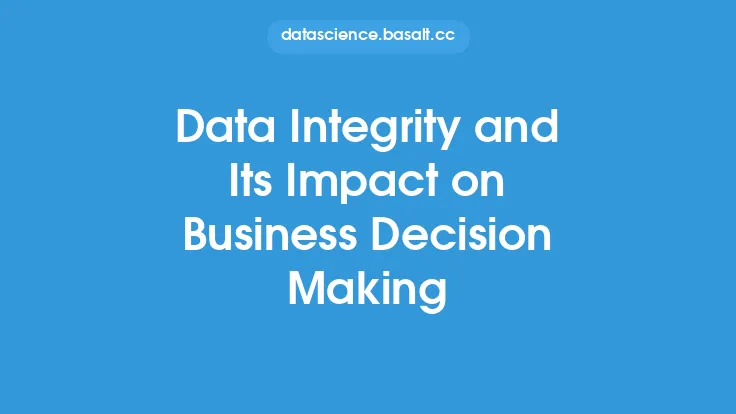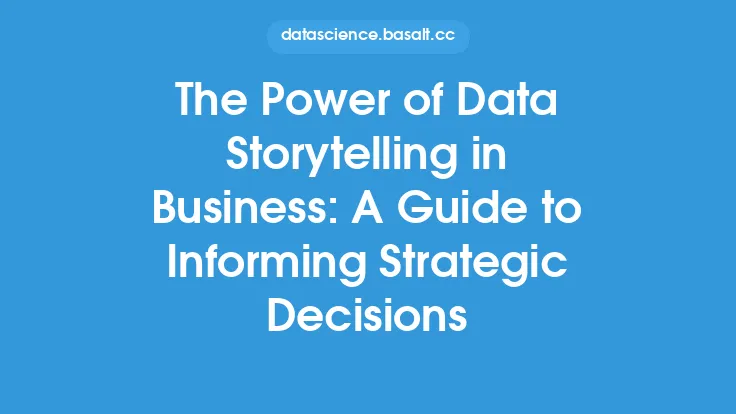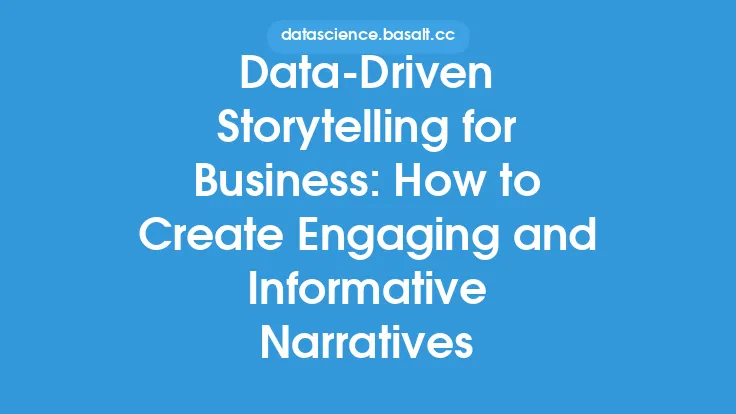In today's data-driven business landscape, organizations are constantly seeking ways to leverage their data assets to inform strategic decisions and drive growth. A well-crafted data policy is essential in ensuring that data is used effectively and efficiently to support business objectives. Data policy refers to the set of rules, guidelines, and procedures that govern the collection, storage, processing, and dissemination of data within an organization. It provides a framework for ensuring that data is accurate, reliable, and secure, and that it is used in a way that is consistent with the organization's overall strategy and goals.
Introduction to Data Policy and Decision-Making
Data policy and decision-making are closely intertwined, as a well-designed data policy provides the foundation for using data to inform strategic business decisions. A data policy should be designed to ensure that data is used in a way that is consistent with the organization's overall strategy and goals, and that it is used to support decision-making at all levels of the organization. This includes providing guidance on data governance, data quality, data security, and data compliance, as well as ensuring that data is used in a way that is transparent, accountable, and ethical.
The Role of Data Governance in Data Policy and Decision-Making
Data governance plays a critical role in ensuring that data is used effectively and efficiently to support business objectives. Data governance refers to the overall management of an organization's data assets, including the development of policies, procedures, and standards for data management. A well-designed data governance framework should include components such as data quality, data security, data compliance, and data architecture, as well as guidelines for data sharing, data access, and data usage. By establishing a robust data governance framework, organizations can ensure that their data assets are managed in a way that is consistent with their overall strategy and goals, and that data is used to support decision-making at all levels of the organization.
Using Data to Inform Strategic Business Decisions
Using data to inform strategic business decisions requires a combination of technical and business skills. It involves collecting and analyzing large datasets, identifying patterns and trends, and using this information to support business decisions. This can include using data analytics and business intelligence tools to analyze customer behavior, market trends, and financial performance, as well as using data visualization techniques to communicate complex data insights to stakeholders. By using data in this way, organizations can gain a deeper understanding of their business and make more informed decisions about how to drive growth and improvement.
Data Analytics and Business Intelligence
Data analytics and business intelligence are critical components of using data to inform strategic business decisions. Data analytics refers to the process of analyzing large datasets to identify patterns and trends, while business intelligence refers to the use of data analytics to support business decision-making. This can include using tools such as statistical modeling, data mining, and machine learning to analyze data, as well as using data visualization techniques to communicate complex data insights to stakeholders. By using data analytics and business intelligence, organizations can gain a deeper understanding of their business and make more informed decisions about how to drive growth and improvement.
Data Visualization and Communication
Data visualization and communication are essential components of using data to inform strategic business decisions. Data visualization refers to the use of graphical and visual techniques to communicate complex data insights to stakeholders, while data communication refers to the process of presenting data insights in a way that is clear, concise, and actionable. This can include using tools such as dashboards, reports, and scorecards to communicate data insights, as well as using storytelling techniques to present data in a way that is engaging and memorable. By using data visualization and communication effectively, organizations can ensure that data insights are used to support decision-making at all levels of the organization.
Best Practices for Implementing a Data-Driven Decision-Making Culture
Implementing a data-driven decision-making culture requires a combination of technical and business skills. It involves establishing a robust data governance framework, developing a data-driven mindset, and using data analytics and business intelligence to support decision-making. This can include providing training and education on data analysis and interpretation, as well as establishing guidelines and procedures for data usage and sharing. By following best practices such as these, organizations can ensure that data is used effectively and efficiently to support business objectives, and that a data-driven decision-making culture is established throughout the organization.
Overcoming Common Challenges in Data Policy and Decision-Making
Overcoming common challenges in data policy and decision-making requires a combination of technical and business skills. It involves addressing issues such as data quality, data security, and data compliance, as well as ensuring that data is used in a way that is transparent, accountable, and ethical. This can include establishing a robust data governance framework, developing a data-driven mindset, and using data analytics and business intelligence to support decision-making. By addressing these challenges, organizations can ensure that data is used effectively and efficiently to support business objectives, and that a data-driven decision-making culture is established throughout the organization.
Conclusion
In conclusion, data policy and decision-making are closely intertwined, and a well-crafted data policy is essential in ensuring that data is used effectively and efficiently to support business objectives. By establishing a robust data governance framework, developing a data-driven mindset, and using data analytics and business intelligence to support decision-making, organizations can ensure that data is used to inform strategic business decisions and drive growth. By following best practices and overcoming common challenges, organizations can establish a data-driven decision-making culture that supports business success and drives long-term growth and improvement.
